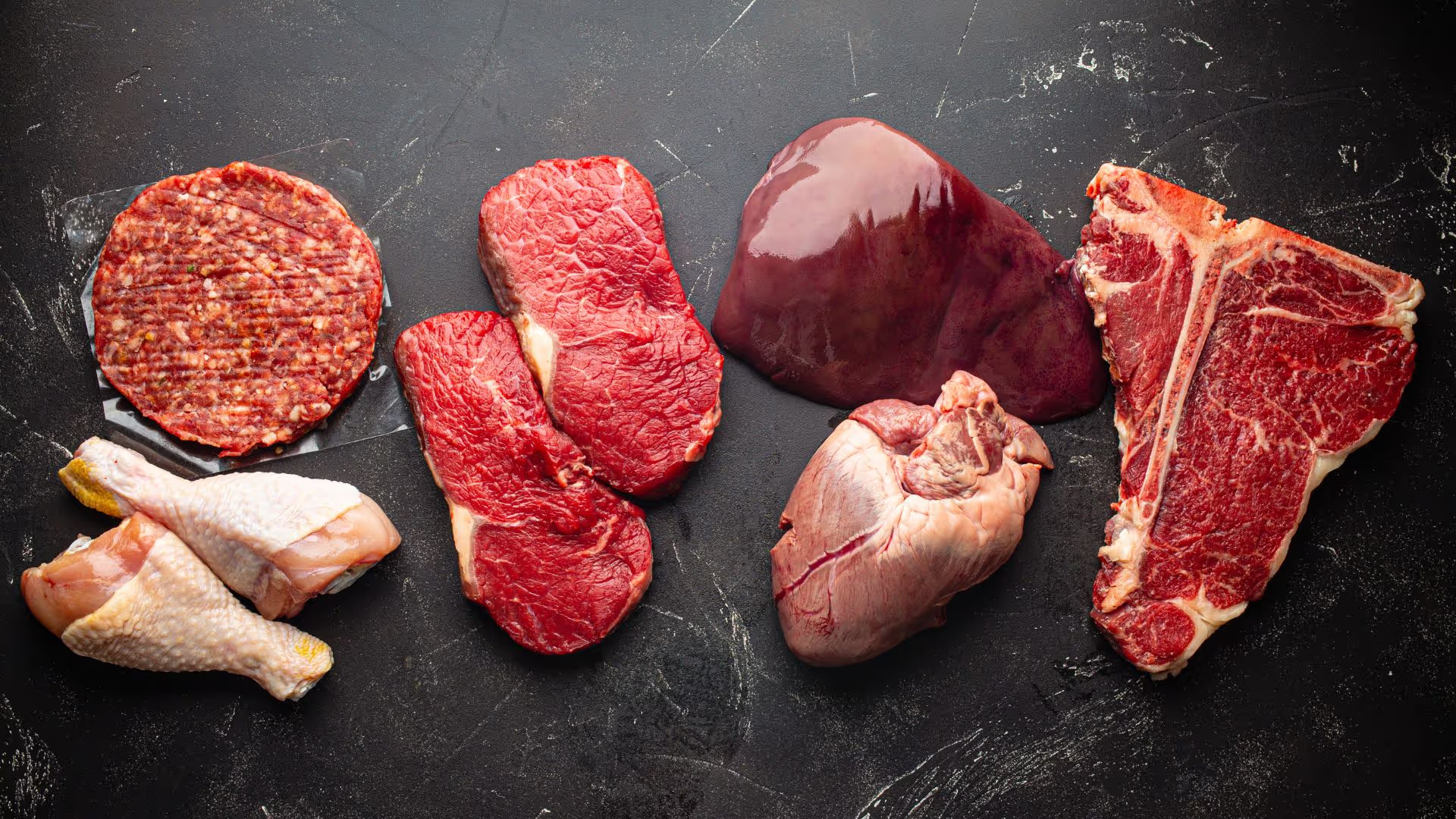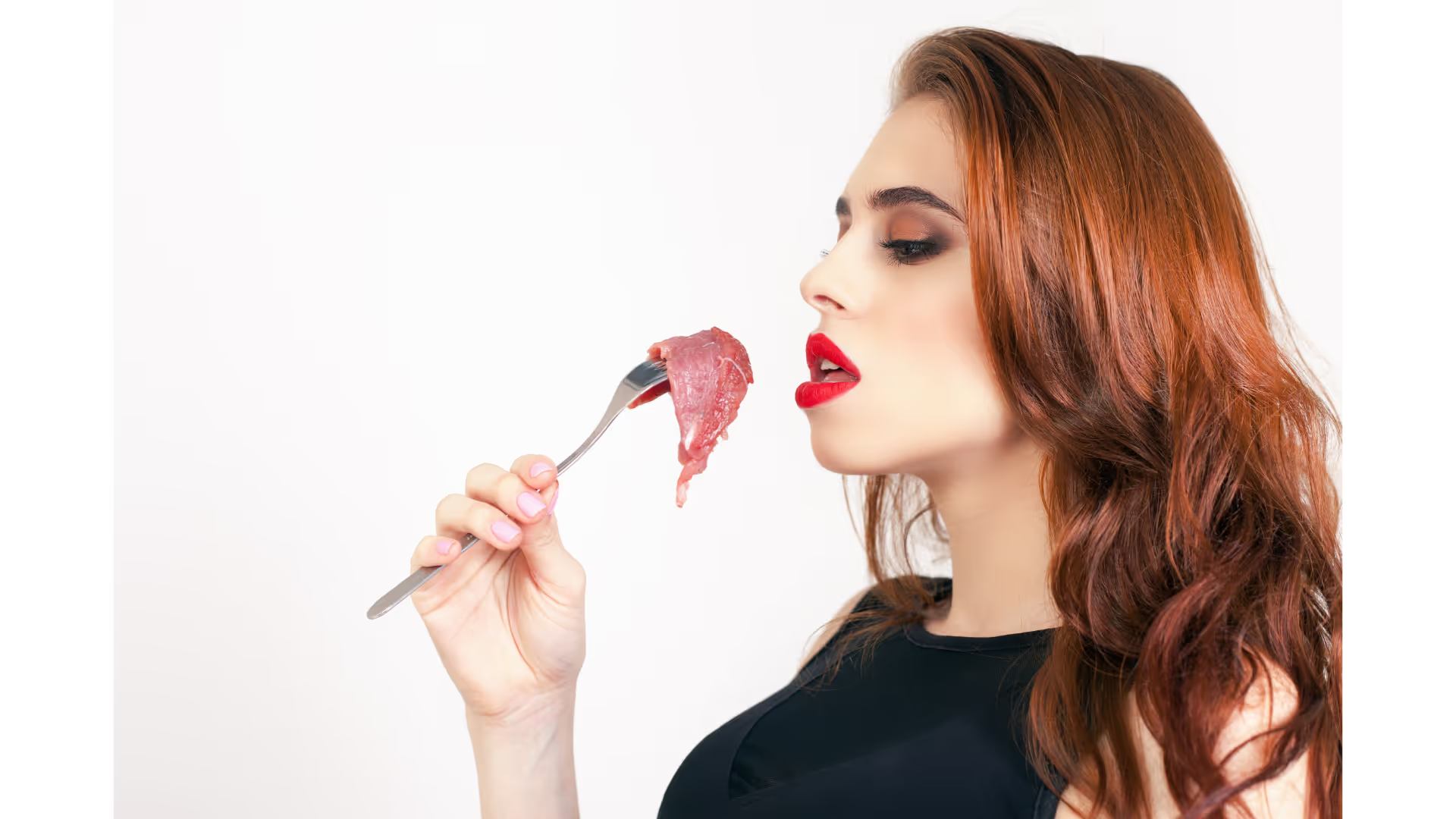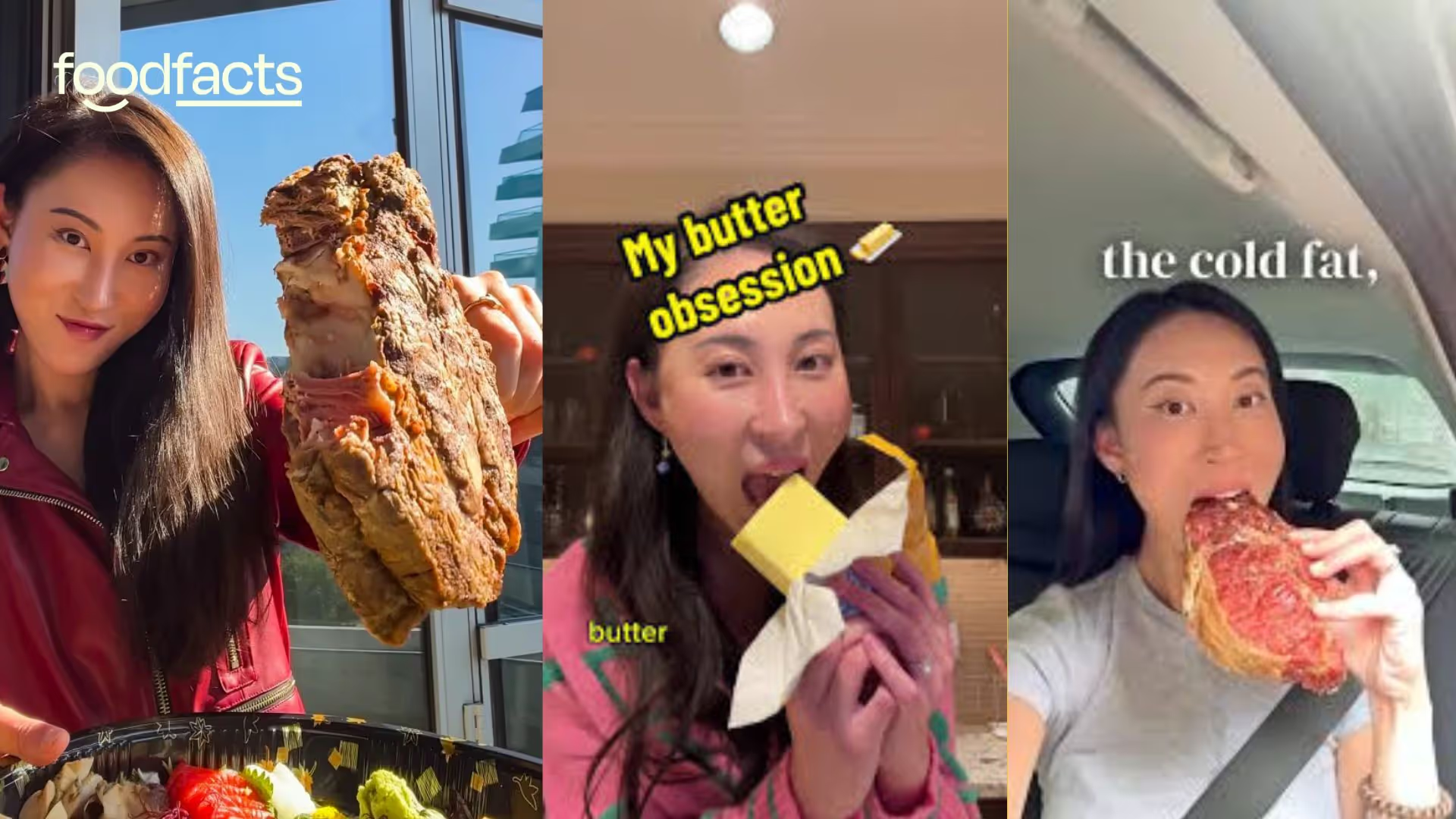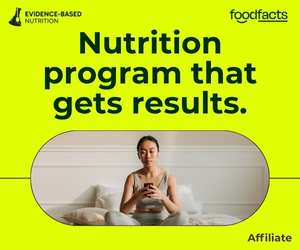
The carnivore diet: what does the data say about its impact on female health?





Coral Red: Mostly False
Orange: Misleading
Yellow: Mostly True
Green: True
Learn more about our fact-checking policies
On May 9th, lifestyle influencer known as ‘Steak and Butter Gal’ took to Instagram to credit her carnivore diet for a range of health benefits, including “amazing hormones, clear glowy skin, amazing hair growth, and zero bloat.” She went on to say, “I have seen women go high-fat carnivore and feel the best they’ve ever felt, they lose weight effortlessly.”
As many women increasingly turn to social media for advice on how to improve hormonal balance, skin and hair health, and manage weight, it becomes important to distinguish between credible health guidance and unverified personal anecdotes. This article will fact-check the claim that a high-fat carnivore diet can improve hormone function and promote effortless weight loss in women, using the best available scientific evidence.
The claims in this video rely solely on anecdotal evidence and lack scientific support. Research shows that high intake of saturated fat increases the risk of heart disease, while excessive consumption of red and processed meat is linked to negative health outcomes, including certain cancers. There is no conclusive evidence that a carnivore diet promotes weight loss or improves hormonal health. In fact, restrictive diets like this one can lead to adverse effects such as irregular or missed menstrual cycles and are often unsustainable, offering no unique benefits over other restrictive diets.
Women’s health, particularly when it comes to hormones, skin, hair, and weight, is often underserved in mainstream medical research and can be difficult to navigate. This lack of clear, accessible information leaves many women turning to social media influencers for guidance. But while personal anecdotes may sound convincing, they don’t carry much weight unless backed by solid scientific evidence. Misinformation can lead to decisions that negatively affect your health and wellbeing. That’s why it’s vital to examine claims like this one through an evidence-based lens, so you can make informed, safe, and effective choices for your body.

When encountering diet and nutrition content on social media, it's important to remain skeptical of claims that a single diet can solve all health problems. Evidence-based nutritional guidelines (NHS) support a balanced diet that includes a variety of foods in the right proportions to promote overall health and maintain a healthy weight.
Claim 1: “I have seen women go high-fat carnivore [...] they lose weight effortlessly.”
Fact-check: an exaggerated claim
The carnivore diet is typically high in fat. One of its well-known advocates, ‘The Steak and Butter Gal,’ promotes a fat-heavy eating pattern. While some fat is essential, helping the body absorb fat-soluble vitamins like A, D and E, excess fat that isn’t used for energy or cell function gets stored in the body.
Fat, regardless of type (saturated or unsaturated), is calorie-dense, providing 9 kilocalories (37 kilojoules) per gram: more than double the energy found in proteins or carbohydrates, which offer 4 kilocalories (17 kilojoules) per gram (NHS).
Excessive intake of saturated fat can elevate levels of LDL cholesterol, generally referred to as "bad" cholesterol, in the blood, therefore increasing the risk of cardiovascular diseases, including heart attacks and strokes. According to NHS recommendations, women should limit their saturated fat intake to no more than 20 grams per day. To illustrate, a single pound of ground beef, as featured in Steak and Butter Gal’s breakfast, contains approximately 51 grams of saturated fat.
The diet proposed by Steak and Butter Gal is a high-fat carnivore diet, therefore one low in carbohydrates, suggested to aid weight loss. However, there is limited scientific evidence to support that a high-fat diet leads to sustainable weight loss. In fact, a 2021 clinical trial found that in a 10 week intervention, a low-carbohydrate high-fat diet group did not achieve any favourable weight loss outcomes when compared to a normal diet.
The carnivore diet is extremely restrictive and may be difficult for many individuals to sustain over time. Similar approaches, like the ketogenic (keto) diet, have also been linked to weight loss claims but come with comparable limitations. Both diets cut out entire food groups, making them hard to stick to over time (source). Therefore, the claim that women on a carnivore diet lose weight ‘effortlessly’ is not representative, as this diet is in fact highly restrictive and unsustainable for most.

The major issue with these claims about the carnivore diet and women’s health is that they rely heavily on feelings and personal testimonials rather than solid evidence - likely because very little research is available, as is too often the case in women’s health. This creates a skewed picture that overstates potential benefits of the carnivore diet while ignoring the growing body of evidence showing that plant-rich diets are consistently linked to better health outcomes.
Claim 2: [‘Never Felt Better’]
Fact-Check: Steak and Butter Gal claims that women “go high-fat carnivore and feel the best they’ve ever felt”. Participants in the 2021 study following the dietary intake of individuals following a carnivore diet did report that their diet enhanced their general health, physical and mental well-being. But ‘feeling good’ does not equate to ‘being healthy’. Many serious health conditions, such as high blood pressure, atherosclerosis, osteoporosis, or even cancer, can develop silently, without noticeable symptoms. Moreover, this self-reported survey didn’t include clinical assessments like blood tests, scans, or long-term disease outcomes, so we can’t draw conclusions about the diet’s actual impact on long-term health.
It is well established that diets lacking in fruits and vegetables are consistently linked to a higher risk of various health conditions, including heart disease, certain cancers, and an increased overall risk of death (source).
Consuming large amounts of red and processed meats has also been strongly connected to heightened risks of several illnesses, such as colorectal, breast, and colon cancers, as well as cardiovascular disease (source 1, source 2). According to NHS guidance, individuals who consume more than 90 grams of red or processed meat daily, roughly equivalent to three thin slices of roast beef, pork, or lamb, should aim to reduce their intake to 70 grams per day to lower their health risks.

Claim 3: Carnivore diet and “amazing” hormonal health
Fact-check: It is important to note that the impact of the carnivore diet on hormonal health has not yet been properly researched. The claim that the carnivore diet is “amazing” for hormonal health is not backed by peer-reviewed human trials, and may ignore potential long-term risks, especially given what we know about hormonal sensitivity to dietary patterns (source, source).
It’s also essential to recognise that each individual’s body responds differently to dietary changes, and there is no universal approach that works for everyone.
Final Take Away
Anecdotes can be powerful, especially in a fast-paced society where issues like fatigue are common, for example among women juggling many demands. This makes the promise of a diet that claims to be the ‘key’ to feeling better or solving a wide range of health problems especially appealing. However, this kind of messaging is a hallmark of nutrition misinformation. It oversimplifies complex issues, often attributing improvements to a single factor without considering other changes, such as reduced intake of ultra-processed foods high in fat, salt and sugar, or increased physical activity.
What’s missing in these narratives is evidence. Current research does not support claims that the carnivore diet improves hormonal health or leads to sustainable weight loss. It also overlooks potential long-term risks associated with such a restrictive eating pattern, such as risks we have explored in this article, including increased risk of cardiovascular disease and cancers.
Importantly, while influencers may say they "feel great" on this diet, subjective feelings don’t reveal hidden health issues, including the development of heart disease, which often has no early symptoms. Algorithms also tend to amplify success stories while suppressing negative experiences, creating a skewed perception of effectiveness.
Ultimately, to truly evaluate health claims, we must rely on high-quality scientific evidence, such as randomized controlled trials, clinical studies, and systematic reviews, not social media testimonials.
We have contacted Bella (‘Steak and Butter Gal’) and are awaiting a response.
Disclaimer
This fact-check is intended to provide information based on available scientific evidence. It should not be considered as medical advice. For personalised health guidance, consult with a qualified healthcare professional.
Stand Against Nutrition Misinformation
Misinformation is a growing threat to our health and planet. At foodfacts.org, we're dedicated to exposing the truth behind misleading food narratives. But we can't do it without your support.
Sources
McGaugh, E. & Barthel, B. (2022). “A review of ketogenic diet and lifestyle.”
Aune, D., et al. (2016). “Fruit and vegetable intake and the risk of cardiovascular disease, total cancer and all-cause mortality—a systematic review and dose-response meta-analysis of prospective studies.”
Farvid, M. S., et al. (2021). “Fruit and vegetable consumption and incident breast cancer: a systematic review and meta-analysis of prospective studies.”
Farvid, M. S., et al. (2021). “Consumption of red meat and processed meat and cancer incidence: a systematic review and meta-analysis of prospective studies.”
Gibson, M. E. S., et al. (2020). “Where have the periods gone? The evaluation and management of functional hypothalamic amenorrhea.”
Lennerz, B. S., et al. (2021). “Behavioral Characteristics and Self-Reported Health Status among 2029 Adults Consuming a “Carnivore Diet.””
Loucks, A. B., & Thuma, J. R. (2003). “Luteinizing hormone pulsatility is disrupted at a threshold of energy availability in regularly menstruating women.”
Mady, M. A., et al. (2003). “The ketogenic diet: adolescents can do it, too.”
Payne, N. E., et al. (2011). “The ketogenic and related diets in adolescents and adults-A review.”
Tena-Sempere, M. (2007). “Roles of ghrelin and leptin in the control of reproductive function.”
Valsdottir, T. D., et al.(2020). “Low-Carbohydrate High-Fat Diet and Exercise: Effect of a 10-Week Intervention on body Composition and CVD risk Factors in Overweight and Obese Women—A randomized controlled trial.” Vázquez, M. J., et al. (2014). “Roles of leptin in reproduction, pregnancy and polycystic ovary Syndrome: consensus knowledge and recent developments.”
Wang, M., et al. (2022). “Red meat consumption and all-cause and cardiovascular mortality: results from the UK Biobank study.”
Wohlgemuth, K. J., et al. (2021). “Sex differences and considerations for female specific nutritional strategies: a narrative review.”
Kubala, J. (2025) “What is the Carnivore Diet?”
Brown, M.J. (2022). “Do Very Low Carb Diets Mess Up Some Women’s Hormones?”



foodfacts.org is an independent non-profit fact-checking platform dedicated to exposing misinformation in the food industry. We provide transparent, science-based insights on nutrition, health, and environmental impacts, empowering consumers to make informed choices for a healthier society and planet.

Was this article helpful?
















.svg)
